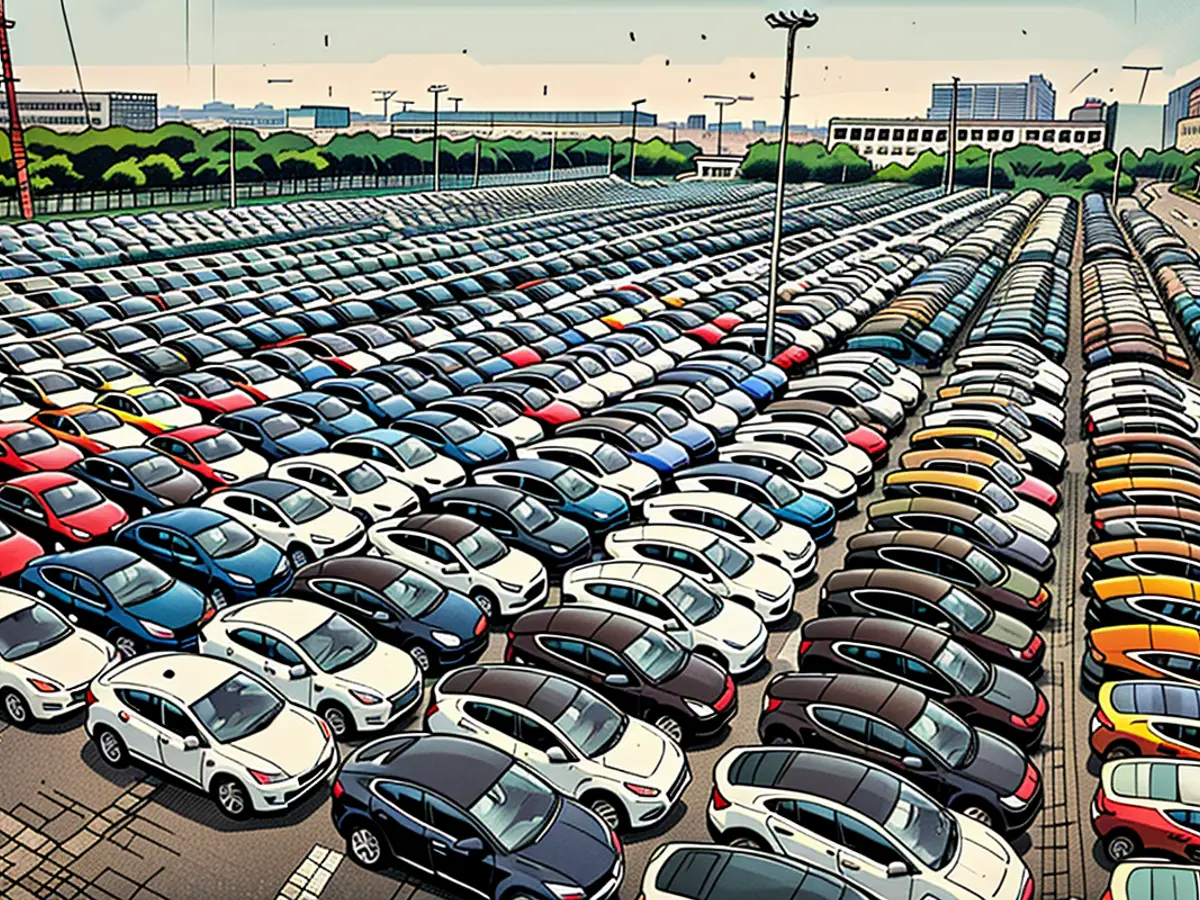Europe recently reduced import taxes on automobiles manufactured by Tesla in China.
The significant move takes place two months following the EU raising taxes on all electric vehicles imported from China, under the argument of "unequal" national subsidies that unfairly boosted China's electric vehicle manufacturers at the cost of European manufacturers.
Tesla, having a factory near Berlin yet exporting numerous cars manufactured in China to Europe, petitioned for the EU to reconsider their initial 20.8% rate.
On Tuesday, the European Commission, the EU's governing body, reduced the rate to 9%. This figure is on top of the existing 10% EU tax imposed on all electric vehicle imports, yet it remains notably lower than the additional taxes of between 17% and 36.3% imposed on other Chinese automobile manufacturers.
The European Commission justified the tariff based on the "amount of subsidies" Tesla received in China.
"We visited China and conducted the same checks as other examined Chinese exporters," the Commission stated. CNN reached out to Tesla for comment.
Gregor Sebastian, a senior analyst at think tank Rhodium Group, expressed surprise over Tesla's 9% additional tariff. He referred to local government loans and subsidized batteries from Chinese battery maker CATL.
"However, making a compelling argument here without all the Commission's inputs and methodology is challenging," Sebastian added.
The additional duty nevertheless remains detrimental for Tesla, but could provide the enterprise "some leeway" compared to SAIC, its significant European rival, according to Sebastian, who predicted "SAIC will experience substantial challenges."
SAIC, owned by the Chinese government and renowned for the MG car brand, has been slapped with an additional 36.3% tariff, labeled for "non-cooperative companies," according to the Commission.
Geely, owning Sweden's Volvo, is facing a 19.3% additional tariff. BYD, competing with Tesla to be the globe's biggest seller of battery electric vehicles, is subject to a 17% additional duty rate.
The tariffs are somewhat less severe than the initially proposed tariffs following a comprehensive investigation and feedback from the automakers, as per the Commission.
Some Chinese companies in joint ventures with EU automakers may even qualify for reduced duties, set at 21.3%, in contrast to the default higher 36.3% rate.
China's Commerce Ministry, on Tuesday, manifested opposition and significant concern regarding the bloc's ruling on electric vehicle tariffs, following an all-encompassing investigation into Chinese electric vehicles. The ministry labeled the investigation conclusions as "distorted" and vowed to "vigorously defend the legitimate rights and interests of Chinesecompanies."
Tesla vs. BYD
Following the EU tariffs' implementation in July, Tesla increased the price of its Model 3 in Europe by roughly 4%, or €1,500 ($1,666), attributing the extra duties.
However, the Model 3 remains more reasonably priced than the BYD Seal, according to George Whitcombe, an automotive research analyst at consultancy Rho Motion. "Now, with Tesla's additional tariff being lowered...the Model 3 will help stay competitive with other Chinese-made electric vehicles in Europe."
BYD, conversely, has yet to adjust its prices in Europe despite the substantial additional tariff.
"BYD has a superior ability to absorb these additional duties due to lower production costs compared to their prices in Europe," said Sebastian of Rhodium Group. He estimates BYD could absorb an additional EU tariff of up to 45%.
The company could enhance its exports of plug-in hybrid electric vehicles, as the tariffs only apply to battery electric vehicles, according to Sebastian. Future tariff-free manufacturing in Turkey for the EU market is also a possibility for BYD. Imports from Turkey are not subject to tariffs.
Despite higher tariffs, Chinese electric vehicle manufacturers are unlikely to abandon Europe, which contributes to more than one-third of their exports annually, surpassing the combined export volume of the following five largest markets, as per Citi.
Chinese automakers experience significant profit margins on their European sales, said Whitcombe.
CNN's Simone McCarthy and Shawn Deng contributed to this report.
Despite the EU reducing Tesla's additional tariff on imported cars from China, the company still faces higher costs compared to its European rival, SAIC. Tesla's factory near Berlin primarily exports cars manufactured in China to Europe, which was a point of contention in the initial tariff discussions.
In contrast, Chinese battery electric vehicle manufacturer BYD has a lower production cost and can absorb a higher additional EU tariff, as suggested by Gregor Sebastian from the Rhodium Group. This advantage allows BYD to remain competitive in the European market, despite facing a substantial additional duty compared to Tesla.








